Popular culture- site for reiteration & reinforcement of sexist, gendered, racist and ethnically discriminatory stereotypes- “Perspective of a Nepali-speaking woman.”
The title itself might seem too cliche´d, and rightly so given the case and historical analysis that it’s been a normative practice especially as a means of casual demeanour reinforcing such oral and psychological attitudes across public multimedia screens. (Web-series, TV shows, movies, social media channels etc.)
This is especially true towards marginalised ethnic communities where the burden still seems to fall upon the more privileged and majority mindset to call names under the callous pretext of amusement and entertainment both in private and public.
These debates have been a part of the academic discourses though not the mainstream, unfortunately, academia still filled up with meta-voices amidst which feeble and non-sustainable ones tend to be outrightly sidelined and hence fades away.
Let me now bring the exact context at this juncture, to be reminded that this isn’t an academically motivated paper awaiting publication.
However, truth be told it does seem a bit difficult without mentioning of the academic angle devoid of the “intellectual gleam,” many self-realised souls find this kind of writing vaguely.
Anyway, that’s them to deal with, the intention is to ensure the common person is able to gain some little insight and moreover self-reflect on topics of this nature rather than make this only a “chai-wala-gupshup,” sooner forgotten than realised.
There are a few things here, first, we’re talking about a relatable socially deep issue which uncovers intersectionality of caste, class, sex, gender, ethnic origin, national and international identity and many more complex concepts.
Each of these ideas has been primarily studied in Social Sciences discourses and are being continued to be researched upon with all good intent presumably but somewhere down the line it just loses its stand amongst other bigger narratives, to be precise the ones concerning “marginalised ethnic identity,”
All ears when the narrative shifts to hefty sounding discourses and subjects of scientific discovery, technology, AI & Virtual reality, economics, politics, media and communication within which globalisation, de-globalisation, trans-nationalisation, and many tion’ is added up regularly.
And what is left to the common person like you and I is— as a matter of personal refuge and escapism to combat such a chaotic and high-funda world is- Television, cinema, social media and so on under the umbrella of popular culture.
Here is when Netflix, Amazon Prime, TikTok, Facebook, Instagram, Twitter along with pirated versions of similar sites are considered such a saviour. (Please feel free to add more, as I’m a bit old school!)
Okay, so good these platforms help us transport at least psychologically to a more imaginary spatial and temporal zones evoking sensory emotions and sentiments.
(Need I say more, especially at the current times where most of us are homebound, our connection with the virtual and online visual world has hugely manifested and surpassed big time…)
Therefore, it becomes even more than a social responsibility for corporations managing these platforms to operate in a conscious manner.
Not just that, the script-writers, producers, directors, actors and in fact everyone involved equally ought to share the impact of any such implications if they have overlooked, misjudged, under-researched thereby having presented certain content under the pretext of public and social awareness towards a targeted set of groups.
Else their collective identity being a part of the entertainment industry could be brought under the serious scanner and fairly so.
This is not the first time nor will this be the last when communities belonging to certain ethnic origins have been presumably taken for granted on-screen whether in India or Internationally.
Now I will tell you why was I talking about the broader social concepts earlier on, it will help us connect to this one specific case.
Ideas of national and international identity have remained a contestable topic for people like me for instance, let’s see how.
I have an Indian passport because I was born and raised in India. My national identity as an Indian citizen remains questioned throughout- and why is that?
It is so as I speak Nepali at home, besides Hindi and English and a few other Indian languages as enshrined in our Indian constitution.
I’m referred to as an Indian Gurkha or Gorkha provided the fact that my forefathers were recruited as fearless warriors by the Indian and the British army.
But that’s history and though even now many Indian Gurkhas/Gorkhas are still very much part of the army services in both of these nations.
The problem arises because historically and ethnically we’re a distinct group of people. Our facial and bodily characteristics vary more than the average accepted Indian.
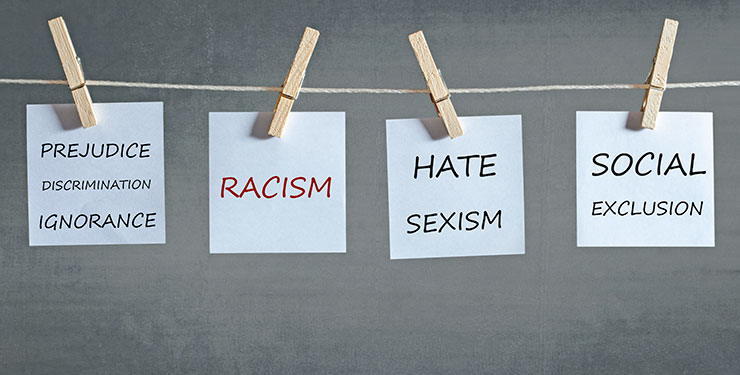
(Which I’ve failed to comprehend what is?) Considering India is such a diverse nation.
We have our unique ways in terms of food and clothing habits like any distinct community in India or anywhere across the globe would have. Having said this, an Indian Gurkha/Gorkha has assimilated to my understanding far and wide which is a sign of being an Indian first and foremost.
However, the process of assimilation takes place or should take place in both ways. Shouldn’t it?
What has the larger Indian mainland community contributed to making the Indian Gurkha/Gorkha feel at home?
The answer is also obvious- “we have learnt to prepare momos or sing a few Nepali songs.” Well, how much is ever good enough or should suffice is a question I readily do not have an answer to?
Yes, Nepali language has been acknowledged as being one of the 22 scheduled Indian languages recognised by the Indian Constitution.
But I dread to use the word “Nepali,” because it attracts ears from our neighbour country- Nepal.
And if their language and origin is Nepali, then what’s mine?
Our ancestral roots of course pre-independence era would have fallen into the mountainous territory of Nepal, hence there’s an undeniable resemblance to our culture and social life to that of Nepal.
As much as I’m an Indian by birth, which is an unchallengeable status— at the same time, I personally opine due to the common language, which binds us so close to Nepal’s Nepali customs.
At times when I’m treated like an outsider or the other in India, I find comfort in my Nepali roots and when my Nepali identity is at stake due to reasons such as (I’m not a Nepali citizen by law) or with the interjection of Hindi in my speech my soul tends to seek solace in the lap of Mother India.
So, whether from the perspective of the Indian Gurkha/Gorkha who speaks Nepali or from the non-Nepali passport holder who to reiterate speaks Nepali as the home language— my heart cries as a Nepali-speaking woman when our gender representation whether in the Nepali, Indian (mainly Bollywood) or in the International screen is portrayed and limited to that of a “whore.”
What does that indicate?
This tells us that as much as it’s a gender and sexist theme it is also a pertinent question on our “ethnicity.”
So much so that it needs an in-depth study, rigorous research and reflections both in India and Nepal, and are we ready for that yet?
Hope you recall at the beginning I had touched upon other notions of caste, class, national and international identity etc. that play a critical role acting as a bridge in forming ties and intersecting with concerns of gender and ethnicity.
Stereotypes have remained at the core of modern multi-media platforms and somehow we’ve all been a part of it either subtly or directly.
The Nepali speaking community (I feel this a safe term to use for now-inclusive of both the Indian Gurkha/Gorkha and Nepal’s Nepali community) has repeatedly been made a part of our ethnic mockery on both small and big screens specifically in the Indian context.
The common narrative of “a security guard with a black cap with a Khukuri (Nepali weapon) badge and a funny-looking moustache saying “Salaam Saabji,” is beyond fun and reconciliation.
Similarly, Nepali women time and again highlighted either as flesh-trade workers or escorts is a conscious negative personification and objectification clearly on the basis of gender and ethnicity— By whom? From the majority, upper-caste, upper-class, patriarchal mind-set women and men alike.
The coming up of these unpleasant remarks and punch lines to gain some cheap thrills and draw TRPs (Television Rating Points) only end up with a bit of fury and condemnation on selective media platforms on the part of the targeted community and post-acceptance of half-hearted apology- things are quickly shoved under the carpet.
The latest one making rounds is the Amazon Prime-run web series “Paatal Lok,” directed by Avinash Arun and Prosit Roy and produced under clean slate films and Indian actress Anushka Sharma’s banner. (As per Wikipedia)
The ten-second clip where a woman police representative is seen abusing the other woman as a “Nepali whore,” is all in all “gendered, sexist and ethnically discriminatory coupled with questions of national and international identity hinted toward the Nepali speaking community doesn’t matter whether in India or Nepal.
When a woman produced media content with the role of woman police use such profane language as a means to demean and dehumanise another only because doing so might end up making a certain caste and class background of women look more privileged, or culturally sound. (The bigger contextual or moral lessons arising out of this just don’t make sense, if one likes to argue on that front)
Or it could simply mean that this kind of character portrayal and character assassination is something deliberately reinforced upon an ethnically marginalised community whose voices are assumed to be comparably under-represented and unheard. (Need not always be necessarily hinted at the Nepali speaking lot… even so, equal voices need to come along in all those cases as well.)
With changing times, we as a Nepali speaking community no longer only serve in the British or the Indian army as selfless frontline warriors with brainwashed minds and blinded sights in the name of symbolic nationality and patriotism. Our achievements might be many as protectors at the borders, but surely that goes unnoticed.
On the contrary, as an Indian we have every right to speak our minds and— to dissent, (accepted or not on a positive note is another question) nonetheless, we try as much as anybody else does in the country or globally.
The Nepali speaking community doesn’t always have to be selling momos on the roadside stalls in metros like Delhi, Bangalore or Pune nor our women be only subjected as beauticians or hospitality staff rather we’ve ascended and distinctively are an able part of the— academia, think tanks, corporations, politics, arts & aesthetics, media, sports and entertainment, likewise any other emerging field one can think of—which the mainstream, socially and culturally capitalised society shies away from bringing it to the table.
It’s due to a variety of historical, social and political reasons that our voices remained subjugated and like still those of many other marginalised and disadvantaged communities in India and across continents, we too faced the brunt of oppression.
Establishing one’s political ideology, cultural & religious beliefs, food eating patterns, conformity to social & national laws and policies are few parameters considered to measure one’s identity which comes to my mind, failing which it inevitably produces unhealthy repercussions.
And this isn’t something to be ignored but needs closer understanding and rightful expression.
Putting someone down on the basis of their looks and their alternative orientation towards these upheld ideals is in fact the signs of a regressive society, where women undoubtedly continue to be taken as mere subjects to fulfil men’s carnal and ego-centric needs on and off-screen.
While the rest of the population including some elite-class women culturally wrapped up might sit and clap giving stars and thumbs up reviews where the already rich become even richer by powerfully selling such prejudiced and discriminatory content arising much discomfort only at the cost of people like me and a handful of others who then tries to establish our authentic identity, without even knowing what is?
When Game of Thrones became such a favourite especially of the Indian youth I know of, I refused to watch it outrightly because the content I had heard of was too brutal and sexist.
If the idea of entertainment and readily available means of seeking pleasure is subjected and limited to the violence of any kind against any deemed-muted and marginalised group/community we need to jerk off a bit and re-think?
Here, in doing so we need to be cognizant of the truth, which implies that it’s NOT a question of an emotional outcry.
It definitely isn’t the task under any social, moral or ethical obligation of only radical feminists, social thinkers or of those who love and think dearly of one’s kinship to reflect on these happenings.
The passing of buck on the society is a safe way to avoid these conversations but who actually comprises of the society?
Not aliens, or the heroic characters from some sci-fi novels or avenger series but ordinary persons like you and I.
Again, the responses to these kinds of caste, class, gender, or ethnically centred discrimination isn’t and can’t be— any form of abuse or violence. Anger, resentment, demanding apology literally or figuratively or otherwise is an extremely short-term solution, which pays off nothing in the real sense.
We as a community, as a globalised village where geographical boundaries no longer matter, must think of organic, sustainable & amiable interventions. As seen and experienced by many of us, what breeds as an ethnic discrimination convert into fundamentalism and racism at a global stage bearing bitter and uncanny aftermath.
Where has our education and humanity failed?
Taking liberty for arriving at an early conclusion that— COVID 19 in the past two-three months has relatively failed to paint a realistic picture or at the least develop basic yet fundamental realisations within us—when an invisible virus can trespass into all of our lives caring a damn about our identities across various levels where ultimately humaneness is what counts, is it still a far-fetched dream to expect humanity is one blood?
Writes: Indu Rai. She is a social thinker, alternative educator and independent researcher. She was raised in Darjeeling and currently frequents between Bangalore and Kathmandu.

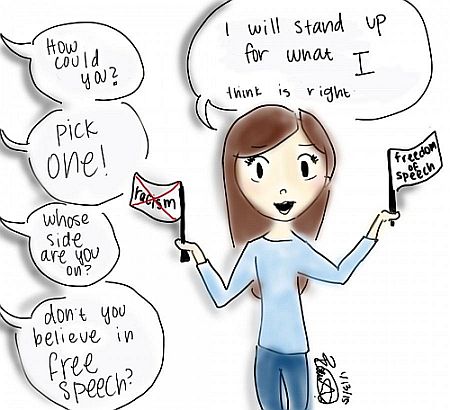
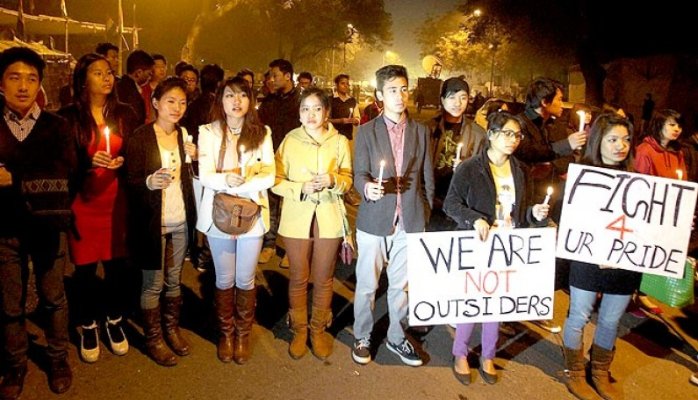
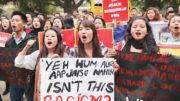
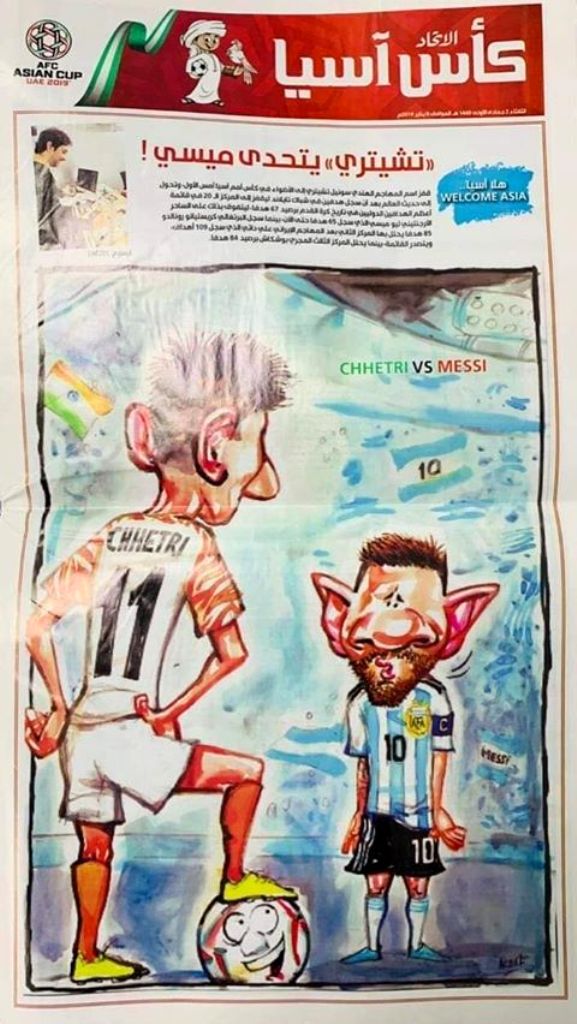

Leave a comment